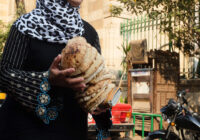By increasing its investment in the Southern Front, the Trump administration can secure some of the most important areas of Syria.
The Syrian opposition movement has come to an inflection point from which it will be irreversibly changed—with significant consequences for the stability of the Middle East and the ongoing US-led campaign against the Islamic State (IS). The recent fall of the rebel-ruled districts of the northern city of Aleppo to the Bashar al-Assad government is leading to perhaps the starkest example of the new normal in Syria: trilateral talks between Russia, Turkey and Iran to end the civil war, cutting out the United States and the Syrian opposition’s High Negotiations Committee.
While the civil war may not immediately end, and the forces loyal to and allied with Assad still not numerous enough to recapture all areas of Syria that are opposition-controlled, 2017 will witness the steady transformation of the opposition. The Trump administration has the ability to shape this transformation and achieve stated goals.
The new administration in Washington has expressed a strong inclination to situate Syria as an important arena in an American global counterterrorism strategy, and the cadre of US vetted and supplied armed opposition groups in southwestern Syria would be a good foundation for this indigenous, Syrian counterterrorism force. This coalition, known as the Southern Front, is backed by a cooperative of most of America’s best partners in the Middle East, and will be an investment that will increase over the course of 2017.
The Southern Front in Syria
What makes the Southern Front particularly valuable as America’s partner in Syria is that it checks all the boxes for what the Trump administration is likely to want from the armed opposition: it is well positioned to combat Iran’s malign activities directly targeting Israel; it is providing a shield for Jordan’s vulnerable northern border against Sunni radical Islamists; and it can be prepared to be a spear aimed at the heart of IS in eastern and central Syria. The Southern Front also controls a large area of strategic terrain a mere 70 kilometers from Damascus, making this coalition a vehicle for applying coercive pressure on the Assad government if necessary.
The Southern Front is the largest organization of US-vetted Syrian rebel groups, and over the course of 2016 this coalition quietly became the focus of an effort by Washington’s closest regional partners—Jordan, the United Arab Emirates, Saudi Arabia and Israel—to control and stabilize considerable, strategic areas of southwestern Syria. And in addition to helping the new administration achieve policy goals such as taking the fight to IS, pushing back against Iran’s Islamic Revolutionary Guard Corps (IRGC) and protecting allies’ security, the Southern Front is prepared to be the indigenous security forces that protect a safe zone to house Syrians displaced by the war, particularly the large population of refugees that is destabilizing Jordan.
The Trump administration has expressed a strong desire to work by, with and through regional partners in the Middle East, and a great benefit of the Southern Front is that the cost of supporting it will not be borne by the US alone. Both Jordan, the original patron of the Southern Front that worked closely with the US to create the coalition in 2014, and Israel, which has steadily increased its support for the local population in Southern Front-controlled areas, are committed to stabilizing southwestern Syria under a moderate local governance that is neither the strongly Iranian-influenced government of President Assad nor Sunni radical Islamists such as IS, al-Qaeda and the Muslim Brotherhood.
Investing in this building effort will further US strategy for Syria, because both Iran and IS view southwestern Syria as a logical site for the expansion of their activities. The IRGC is seeking to utilize the Golan border areas of Syria to establish another front against Israel, and the Islamic State is seeking to subvert the armed opposition in southwestern Syria to stage attacks against Jordan.
The Southern Front’s spirited pushback against IRGC-mobilized forces in the Golan Heights, combined with Iran’s expanded investment in the southern Syria theater, has prompted Israel to choose a more proactive role in Syria. This role will only increase, both overtly in Israel’s expanded use of direct action against the Lebanese Hezbollah and the IRGC in the Golan, and semi-covertly as the Israelis increase their support for communities in southwestern Syria that are protected by the US-vetted and Jordanian-approved Southern Front.
The Southern Front coalition is important for the future of Syria because it can serve as the model for an acceptable and nationalist security force that can be a partner for stability in the country as the Trump administration looks to work with global and regional partners to end the civil war. In June 2016, the US designated an Islamic State affiliate in southwestern Syria as a terrorist organization, opening a clear legal pathway to provide lethal assistance to Southern Front affiliates willing to prioritize the fight against IS.
 Russia, acting on an agreement with Israel and Jordan, has also largely curtailed Assad government attacks on Southern Front-controlled areas, creating the de facto safe zone in southwestern Syria that can be used to organize an indigenous counterterrorism force out of the Southern Front. This force can provide security for a safe zone for displaced Syrians, and can be a staging point for the larger counter-IS campaign.
Russia, acting on an agreement with Israel and Jordan, has also largely curtailed Assad government attacks on Southern Front-controlled areas, creating the de facto safe zone in southwestern Syria that can be used to organize an indigenous counterterrorism force out of the Southern Front. This force can provide security for a safe zone for displaced Syrians, and can be a staging point for the larger counter-IS campaign.
In addition to its presence in Daraa, the Islamic State is edging closer to the south after its recapture of Palmyra on December 11, 2016. The group’s increased activities in that region highlight the integral role of the Southern Front in the fight against IS in central and eastern Syria.
The Trump Administration
By increasing its investment in the Southern Front, the Trump administration can secure some of the most important real estate in Syria, linking southwestern and eastern Syria in an arc of US influence, and utilize this territory to increase American leverage on the outcome of the counter-IS campaign and the conclusion of the Syrian Civil War.
Through the Southern Front, US President Donald Trump can win the long game against Iran and Islamic extremism in the Middle East.
The views expressed in this article are the author’s own and do not necessarily reflect Fair Observer’s editorial policy.
Photo Credit: TzahiV
Support Fair Observer
We rely on your support for our independence, diversity and quality.
For more than 10 years, Fair Observer has been free, fair and independent. No billionaire owns us, no advertisers control us. We are a reader-supported nonprofit. Unlike many other publications, we keep our content free for readers regardless of where they live or whether they can afford to pay. We have no paywalls and no ads.
In the post-truth era of fake news, echo chambers and filter bubbles, we publish a plurality of perspectives from around the world. Anyone can publish with us, but everyone goes through a rigorous editorial process. So, you get fact-checked, well-reasoned content instead of noise.
We publish 2,500+ voices from 90+ countries. We also conduct education and training programs
on subjects ranging from digital media and journalism to writing and critical thinking. This
doesn’t come cheap. Servers, editors, trainers and web developers cost
money.
Please consider supporting us on a regular basis as a recurring donor or a
sustaining member.
Will you support FO’s journalism?
We rely on your support for our independence, diversity and quality.






